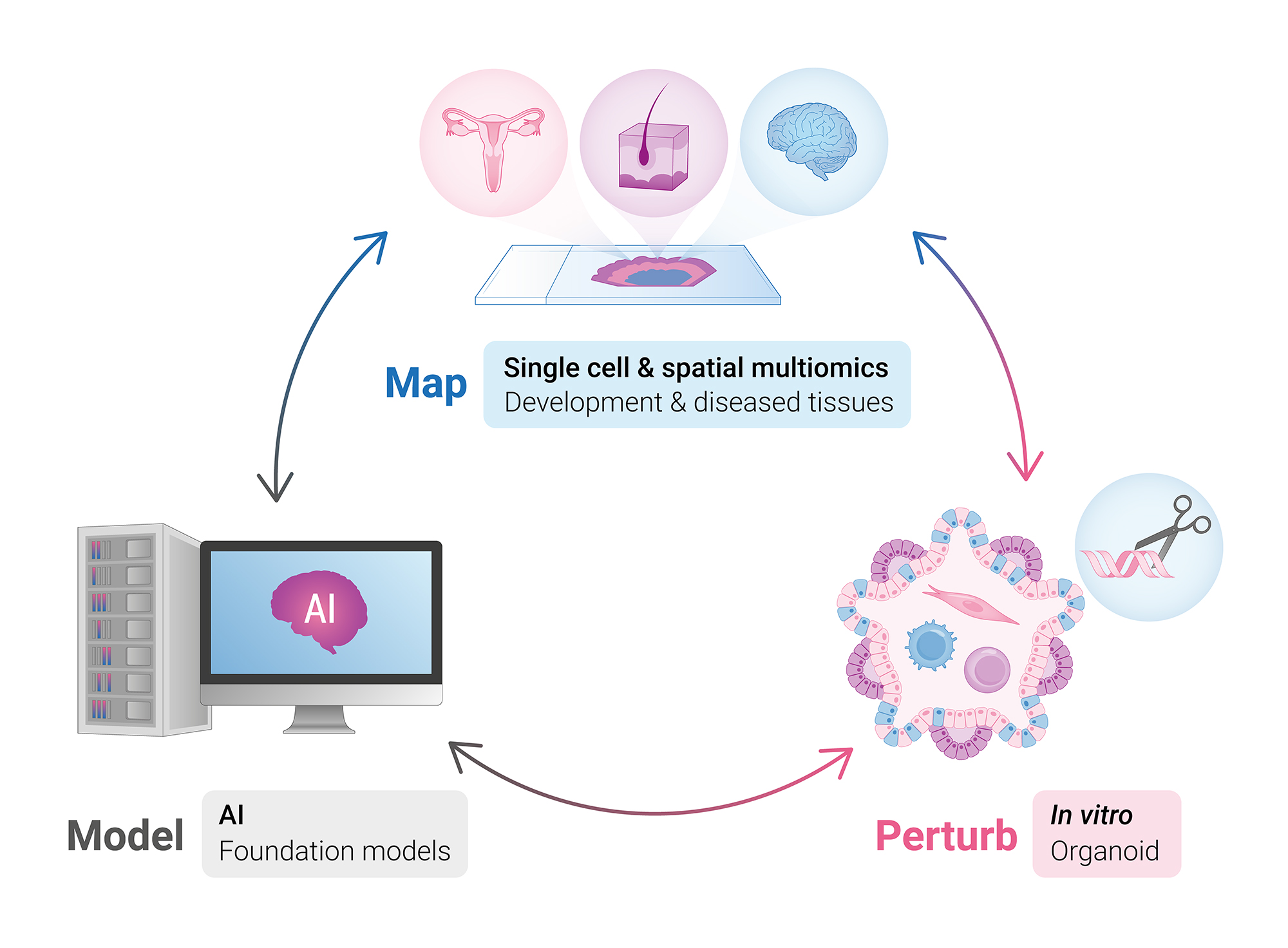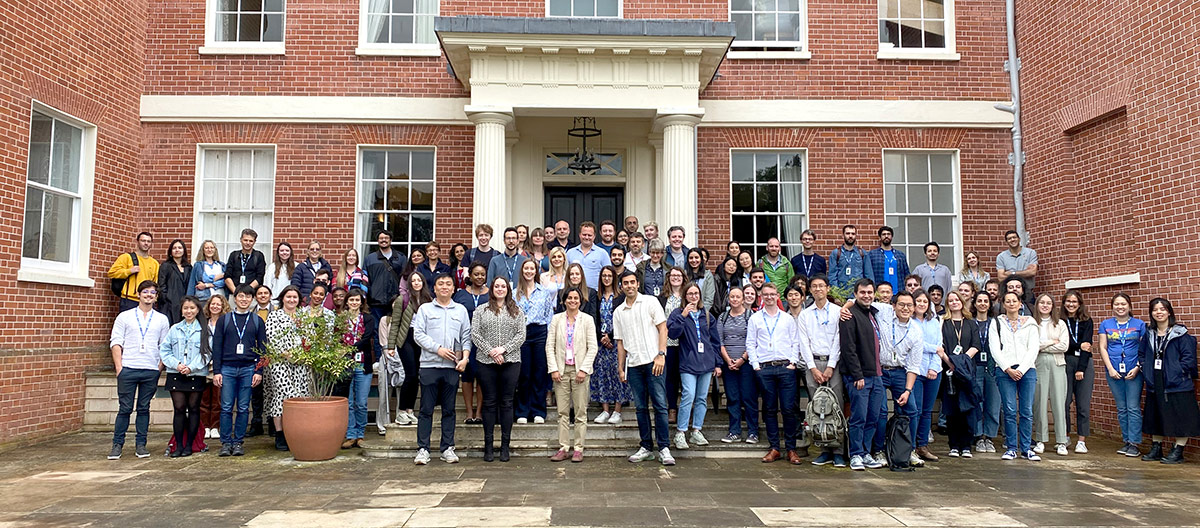Cellular Genomics
Overview
Our strategy
To understand how tissue ecosystems work, we:
Map human tissues across the lifespan and in healthy and patient cohorts using single cell and spatial multiomics, building comprehensive atlases that serve as foundational resources for the field.
Perturb human tissues in vitro using advanced multilineage organoid systems, allowing us to test the predictions of the atlases.
Model human tissues in silico using artificial intelligence to, revealing hidden associations in the data and guiding further experiments.
These three approaches are integrated into a “lab-in-the-loop” workflow – with foundation models continually guiding our mapping and perturbations.

Integrated multidisciplinary expertise
Our group leaders are world-leading scientists and clinician-scientists with wide ranging expertise including in the cellular basis of immune disorders, the molecular drivers of childhood cancers, and the development and function of reproductive tissues and the brain. We are a centre for technology development, both in terms of hardware (e.g. spatial genomics, multiomics) and software (e.g. foundation models, bioinformatic tools). Our scientists are key contributors to the Human Cell Atlas international consortium, which aims to create comprehensive reference maps of all human cells.

Driving research culture and equity
We are committed to democratising our data to ensure our scientific insights are available to the entire global community. We develop portals to make our datasets intuitive to browse and query for researchers, clinicians and educators globally. We also actively share our findings through pre-prints to ensure our discoveries and data can rapidly power further research, in line with our open science philosophy.
We seek to study the full diversity of human populations where possible. We achieve this by ensuring representative samples in our research to promote data equity in both range and access. Furthermore, we actively engage with patient groups, ensuring that our research addresses their real-world needs.
Diversity and inclusivity are cornerstones of the Cellular Genomics Programme – not only in our research but in our researchers too. Our researchers bring a wide range of scientific expertise and lived experiences from around the world, enriching our science. We are proud that our inclusive research culture empowers our teams to drive forward transformative discoveries and innovative science.



